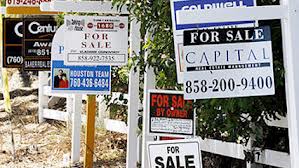 In many metropolitan housing markets in the United States these days, real estate brokerage firms are looking for bilingual agents. Even better: Polyglot agents who are attuned to the sensibilities of certain cultures around the globe. These worldly agents are bound to be kept on their toes by potential buyers and managers who arrive in U.S. soil flushed with cash or ready to call their assistants bank home to prepare international wire transfer instructions to American banks.
In many metropolitan housing markets in the United States these days, real estate brokerage firms are looking for bilingual agents. Even better: Polyglot agents who are attuned to the sensibilities of certain cultures around the globe. These worldly agents are bound to be kept on their toes by potential buyers and managers who arrive in U.S. soil flushed with cash or ready to call their assistants bank home to prepare international wire transfer instructions to American banks.
The influx of home shoppers who come from nations where economic development is booming, such as Brazil, Russia and Australia, has been a staple of the real estate industry in South Florida and California since the bursting of the housing bubble. These would-be investors were looking for rock-bottom deals and dirt-cheap bargains that they could easily capitalize on, but now they are turning their attention to long-term investment strategies and lease contracts.
Investment-Grade Acquisitions
The interest by foreigners in the U.S. housing market has considerably matured over the last few years. A recent article in the Wall Street Journal explained how Australian investors are taking advantage of their strong currency to acquire, rehab and rent residential properties. These investors are hardly alone in this trend; Wall Street firms such as the Blackstone Group and Berkshire Hathaway are very interested in the rental market, and even American home builders are taking on multifamily construction projects in lieu of single family housing.
The strength of the Australian and Canadian dollars against the greenback has a lot to do with this investment trend, and even U.S.-based real estate investment trusts (REIT) are seeing an influx of shareholders from overseas. This does not mean Australians or Canadians are not confident in their own economies; it is simply a matter of taking a position in the market at the right time.
Some of these foreign investors are very sophisticated in their approach. According to the Wall Street Journal, a group of Australian investors in 2009 attended seminars focused on the real estate acquisition process in the U.S. These seminars, which cost as much as $8,000, laid a foundation for investors who would later arrive in hot rental markets such as Atlanta, Dallas and Phoenix.
Australian investors are not alone in this trend. Asset management firms from Montreal and Toronto are busy acquiring hundreds of millions of dollars in U.S. real estate located in the states where the housing bubble had the greatest impact: Arizona, California and Florida. One of these firms has purchased nearly 600 homes in South Florida; they range from luxury rentals to Section 8 tenants.



